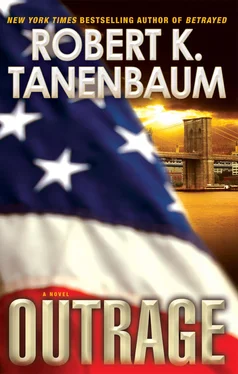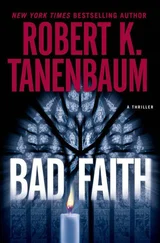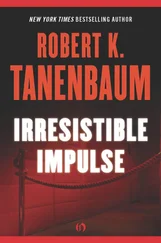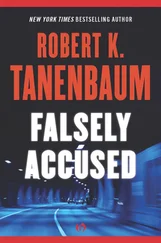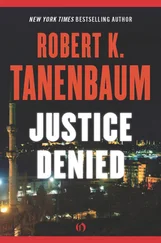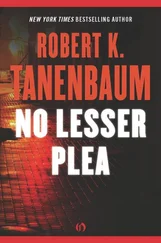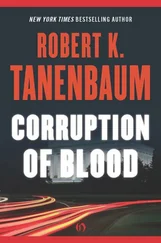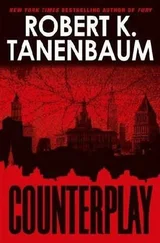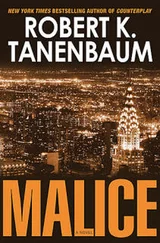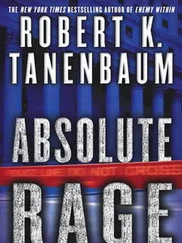Robert Tanenbaum - Outrage
Здесь есть возможность читать онлайн «Robert Tanenbaum - Outrage» весь текст электронной книги совершенно бесплатно (целиком полную версию без сокращений). В некоторых случаях можно слушать аудио, скачать через торрент в формате fb2 и присутствует краткое содержание. Жанр: Исторический детектив, на английском языке. Описание произведения, (предисловие) а так же отзывы посетителей доступны на портале библиотеки ЛибКат.
- Название:Outrage
- Автор:
- Жанр:
- Год:неизвестен
- ISBN:нет данных
- Рейтинг книги:3 / 5. Голосов: 1
-
Избранное:Добавить в избранное
- Отзывы:
-
Ваша оценка:
- 60
- 1
- 2
- 3
- 4
- 5
Outrage: краткое содержание, описание и аннотация
Предлагаем к чтению аннотацию, описание, краткое содержание или предисловие (зависит от того, что написал сам автор книги «Outrage»). Если вы не нашли необходимую информацию о книге — напишите в комментариях, мы постараемся отыскать её.
Outrage — читать онлайн бесплатно полную книгу (весь текст) целиком
Ниже представлен текст книги, разбитый по страницам. Система сохранения места последней прочитанной страницы, позволяет с удобством читать онлайн бесплатно книгу «Outrage», без необходимости каждый раз заново искать на чём Вы остановились. Поставьте закладку, и сможете в любой момент перейти на страницу, на которой закончили чтение.
Интервал:
Закладка:
He wasn’t quite sure what he was going to do with the ring, but he was tired of everyone making fun of him because he’d never had a girlfriend. There was this one girl he liked. She worked as a waitress at the Hip-Hop Nightclub on West Thirty-eighth Street in Manhattan. Maria Elena. He was going there next week to perform for open mic night at the invitation of his friend Alejandro Garcia, who was a big-time rap artist.
Maybe she’ll notice me, he thought happily as he stuffed the ring in his pants pocket and headed for his family’s apartment on Anderson Avenue.
3
“Mr. Karp, that newspaper reporter Ariadne Stupenagel is here to see you. She says she has an appointment,” Karp’s receptionist, Darla Milquetost, said over the office intercom.
“Tell her I’m not in,” Karp replied, loud enough that Stupenagel could hear him not only through the intercom but also through his open office door. He winked at his wife, Marlene Ciampi, who was visiting and waiting for her old friend Ariadne.
Karp was kicked back in the leather office chair with his size-fourteen feet up on the ancient battle-scarred mahogany desk that had occupied the inner sanctum of the New York district attorney’s office since the days of his mentor, the legendary district attorney Francis X. Garrahy.
He stood and stretched his still-trim, six-foot-five frame. It had been a week since the jury had come back with a guilty verdict in the murder trial of the Harlem imam Sharif Jabbar, and he was still enjoying the release of all the tension that came with such an undertaking.
There was no gloating over the verdict. The way he saw it, the advantage was with the prosecution. As the chief prosecutor, he knew he would prevail if he did his preparation and was certain of the defendant’s factual guilt going into the trial, and if he had legally admissible evidence to convict beyond any and all doubt. Otherwise, the defendant never should have been charged in the first place, he thought.
However, with Jabbar convicted, it was as if Karp had passed through the perfect storm. Now the sky was blue, the ocean a lake, and he was relaxed and starting to catch up on some of his administrative duties, as well as what was going on at the DAO while his focus had been fully occupied by the terror trial.
The only thing rocking his boat at the moment was the impending court battle to make sure that Jabbar served his sentence of life without parole in New York and wasn’t whisked off by the feds into a witness protection program in exchange for information, thus escaping punishment. Even if he could keep Jabbar in a New York state prison for the rest of Jabbar’s life, Karp was still torn over whether the punishment fit the crime. He thought back to some of the discussions he’d had with several of the senior members of his staff over whether to pursue the death penalty for Jabbar.
There was no doubt in Karp’s mind that Jabbar had deserved the death penalty-the victim had been cruelly tortured for hours before her execution, which had itself been painful, horrific, and slow. However, there’d been other considerations. One was that there was no evidence to prove that Jabbar knew about, or participated in, the victim’s torture-one of the aggravating factors necessary to warrant the death penalty. And two, witness testimony and the evidence clearly showed that the terrorist Nadya Malovo actually wielded the murder weapon; Jabbar had been more planner, facilitator, and cheerleader than executioner.
This had not stopped Karp from prosecuting the anti-U.S. firebrand imam. For his role, Jabbar was just as guilty in the eyes of the law as Malovo. But when deciding whether to seek the death penalty, Karp had to weigh the possibility that jurors would make a distinction between Malovo and Jabbar.
On the one hand, it wouldn’t make a difference; if they found Jabbar guilty but refused to vote for the ultimate punishment, Jabbar would automatically be sentenced to life without parole. However, in the past there had been death penalty cases in which jurors knew that a conviction might subject the defendant to an execution they didn’t believe the defendant deserved specifically because he or she wasn’t the “real killer.” Jurors finding themselves in this position sometimes balked at rendering a guilty verdict. And all it took was one holdout for a hung jury.
Unwilling to take that chance in this case, Karp knew he had to be satisfied with the life-without-parole sentence… as long as it was served in New York. However, if he got the chance, Karp knew he would pursue the death penalty against Malovo, the always elusive, daring, and vicious assassin. She’d been apprehended in Manhattan by U.S. Marshal Jen Capers after murdering one of his star witnesses, Dean Newbury, near the end of the Jabbar trial. But for the moment, it looked like he wasn’t going to get the chance to prosecute her in a New York City courtroom. She was locked away in a federal maximum-security penitentiary awaiting trial on a variety of federal charges and he couldn’t get at her.
The situation made him uneasy on a personal level, too. Malovo had a grudge against him and his family, and he’d be able to keep better tabs on her if she was locked up in New York.
In the meantime, the Karp-Ciampi household was in a state of flux. His wife was casting about for “something fulfilling” to do as she contemplated the last of their children leaving the home in a couple of years. An attorney herself, she’d recently successfully represented “Dirty Warren,” the vendor operating the newsstand in front of the Criminal Courts Building at 10 °Centre Street. He had been charged with murder in Westchester County. Flush with victory, she was considering taking on the occasional case in which she felt an injustice was being perpetrated; however, she wouldn’t take on cases in Manhattan to avoid any perceived conflict of interest with her DA husband.
Meanwhile, his daughter Lucy’s summer nuptials had been postponed-apparently indefinitely. The reason given when Lucy showed up suddenly in New York from her home in New Mexico was that her fiance, Ned Blanchett, had been called away on “business,” which was code for an assignment with the antiterrorism agency they both worked for. However, Karp had been told by his wife that Lucy was having second thoughts about getting married.
On a brighter note, their twin sons, Isaac and Giancarlo, were at long last going to have their bar mitzvah, a rite of passage that had been interrupted and delayed by a seemingly constant stream of “mayhem,” as Marlene referred to it. Although a couple of years beyond the usual age for the ceremony, they were now aiming at late summer/early fall.
The boys were currently working on a Jewish history report that the rabbi of the bar mitzvah class was requiring, as well as the traditional reading of the Torah. Karp was pleased that they’d decided to interview his friend Moishe Sobelman, a Midtown bakery owner, about his horrific experiences as a prisoner in the infamous Nazi death camp at Sobibor, Poland.
Karp leaned forward and pressed the button on the intercom again, smiling as he did at Marlene, a petite beauty with dark curly hair who carried herself with a grace and charm that still enraptured her husband. “Send her in, I guess,” he groused good-naturedly. “And thank you, Darla.”
“You’re welcome, Mr. Karp,” his receptionist said with a tone that indicated she would have rather told the visitor to take a hike.
The door to the office opened and a tall, redheaded Valkyrie in a lime-green dress blew into the room like a force of nature. “Very funny, Karp,” Ariadne Stupenagel said, rolling her eyes at Marlene. “You really know how to make a girl feel welcome… Oh good, I see that your only redeeming feature-your wife-is here.” She crossed the room and embraced Marlene, giving her a kiss on each cheek that left a smudge of her trademark crimson lipstick.
Читать дальшеИнтервал:
Закладка:
Похожие книги на «Outrage»
Представляем Вашему вниманию похожие книги на «Outrage» списком для выбора. Мы отобрали схожую по названию и смыслу литературу в надежде предоставить читателям больше вариантов отыскать новые, интересные, ещё непрочитанные произведения.
Обсуждение, отзывы о книге «Outrage» и просто собственные мнения читателей. Оставьте ваши комментарии, напишите, что Вы думаете о произведении, его смысле или главных героях. Укажите что конкретно понравилось, а что нет, и почему Вы так считаете.
